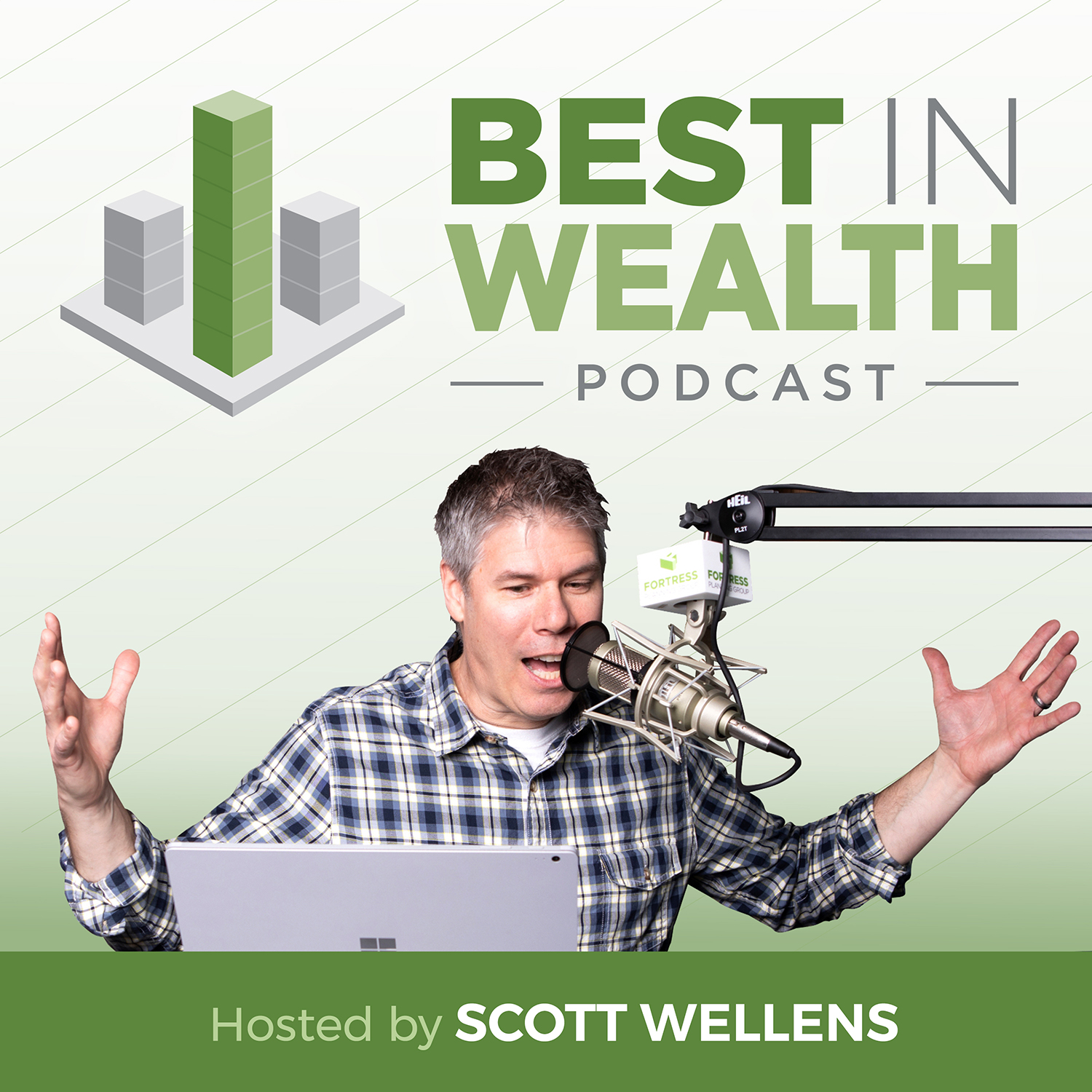
Best In Wealth Podcast
Scott Wellens
Podcast
Episodes
Listen, download, subscribe
Timing the Market? Here’s What It’ll Cost You
As most of you know, inflation is high—higher than expected. Things do not look good in the news. Things do not look good in our portfolios either. As humans, when we feel like we are losing, we get the urge to sell our investments, sit on the cash, and wait on the sidelines for the news cycle to get better. It is natural and normal to feel nervous. The thought of selling everything likely crosses everyone’s mind. In 2020, the market dropped 37%. When it was down around 20%, one of my clients sold everything and went into cash. They said there was no way the market was going to recover. But no one tells you when to get back in. No one knows when to get back in. So what does it cost you? I did some research and tried to answer that very question in this episode of Best in Wealth. [bctt tweet="Trying to time the market? Find out what that could cost you in this episode of Best in Wealth! #wealth #retirement #investing #PersonalFinance #FinancialPlanning #RetirementPlanning #WealthManagement" username=""] Outline of This Episode [1:10] Trying to cultivate a perfectly curated lawn [6:33] The cost of trying to time the market: Statistics [8:44] What if you missed the best week? [12:56] What if you missed the best month? [14:03] What if you missed the best 3 months? [15:22] What if you missed the best 6 months? [17:48] What is the best thing you can do? Analyzing a hypothetical investment over the last 25 years Let’s say you had a hypothetical $1,000 that you invested in the Russell 3000 in 1997—25 years ago. The Russell 3000 is broadly diversified with large, mid-size, and small US companies within it. What would it look like now? If it were an actual investment, that $1,000 would be worth $10,367. Pretty cool, right? That investment lived through Democrats and Republicans being President. It lived through wars, the dot-com bubble, great recessions, the housing market crash, and much more. Even though you occasionally thought about selling, you stayed disciplined and remained in your investments. What if you missed the best week? But what if you decided to remove your investments from the market and sideline them for a period of time? If you missed THE very best week in the last 25 years, what would you have? The best week was the week ending November 28th, 2008. This week was in the midst of the great recession. No one would have guessed that this would be the best week. If you pulled out of the market, your investment would be down 17%, at $8,652. Think of that impact. You have 17% less than you deserve. [bctt tweet="What if you missed the best week in the stock market in the last 25 years? I dissect a hypothetical investment to share a stark truth in this episode of Best in Wealth. Don’t miss it! #wealth #retirement #investing #PersonalFinance #FinancialPlanning #RetirementPlanning" username=""] What if you missed the best month? The best month in the last 25 years ended on April 22nd, 2020, the beginning of the pandemic. Stocks had already started declining in February. The news was not good. If you pulled your money out for that month, you would have 20% less—$8,279. What if you missed the best 3 months? The best 3 months in the stock market in the last 25 years were the 3 months ending June 22nd, 2020, during the pandemic. That is when someone I knew pulled their money out of the market. They missed a chunk of the very best 3 months if not all of it. The market shot up. If you pulled out of the market and missed the best 3 months, you would have 30% less: $7,308. What if you missed the best 6 months? The best 6-month period ended September 4th, 2009. The market hit bottom at the end of March and was down 53%. Your $1 million was now $500,000. Would it...
Best In Wealth Podcast RSS Feed

